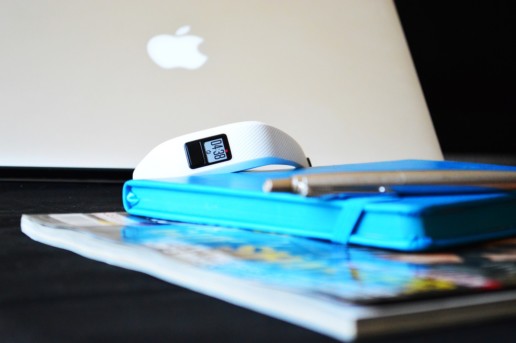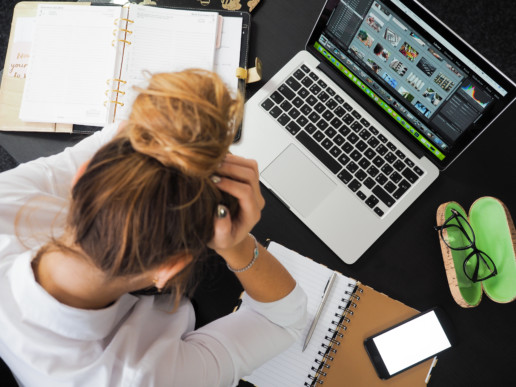Employers can help employees catch some Z's with new wellness benefit
Employers are starting to offer employee benefits that are focused on a long-ignored but crucial aspect of employee health - sleep. Read this blog post to learn more about this new wellness benefit.
Employers are taking a greater interest in employees’ emotional and physical well-being by offering specialized programs focused on mental health, weight loss, financial health, and now one long-ignored yet crucial aspect of health — sleep.
Beddr, a sleep health technology company, has launched a comprehensive, personalized solution to identify and treat the root causes of chronic sleep issues, though a voluntary benefits platform. The program leverages clinical data captured from Beddr’s app that uses an optical sensor and accelerometer to measure blood oxygen levels, stopped breathing events, heart rate, sleep position and time in bed.
About 45% of the world’s population has chronic sleep issues, according to a study in the Journal of Sleep Research. Poor sleep costs U.S. employers an estimated $411 billion each year, according to a report from Rand.
Employees using the Beddr benefit will have access to an expert-led sleep coaching program and a nationwide network of sleep physicians to provide targeted treatment options to help employees improve their sleep health. The program has the potential to save an employer up to $5,700 per employee, per year in productivity improvements, lower healthcare costs and decrease accident rates, Beddr says.
“Sleep is the foundation to every employee’s mental and physical health. High quality sleep has been shown to both reduce healthcare costs as well as improve productivity, but most employers haven’t found a comprehensive program that addresses the primary root causes of sleep issues and that benefits their entire workforce,” says Michael Kisch, CEO of Beddr. “We have seen a dramatic increase among our users relative to the overall population in their understanding of their sleep health and how their choices impact their overall sleep quality.”
Beddr partners with benefits teams to design a customized program specific to each employer and their employees. The company developed a screening process that makes it easy for an employer to engage their employee base, while providing Beddr the ability to identify employees who are a good match for the program.
In some cases, the company heavily subsidizes the cost of the benefit to employees, while in others it is the full responsibility of the employee. In the latter instance, the company negotiates a discount that is passed on to all participating employees. That discounted price is less than what an employee would pay to purchase the program directly from Beddr.
“Beddr was founded on the belief that the most important thing a person can do to improve their physical and mental health is to get consistent, high-quality sleep,” Kisch says. “We see employers as natural partners in fulfilling this mission because the goals of a company and its management are highly aligned with the goals of our program — to improve the health and productivity of employees. ”
SOURCE: Shiavo, A. (23 October 2019) "Employers can help employees catch some Z's with new wellness benefit" (Web Blog Post). Retrieved from https://www.benefitnews.com/news/beddr-app-helps-employees-get-more-sleep
Counting sleep: New benefit encourages employees to track their shut-eye
Are your employees getting enough sleep? According to the CDC, about one-third of U.S. adults reported getting less than the recommended amount of rest. Read this blog post to learn more.
It’s one of employers’ recurring nightmares: Employees aren’t getting enough sleep — and it’s having a big impact on business.
Roughly one-third of U.S. adults report that they get less than the recommended amount of rest, which is tied to chronic health issues including Type 2 diabetes, heart disease, obesity and depression, the Centers for Disease Control reports.
That lack of sleep is also costing businesses approximately $411 billion a year in lost productivity, according to figures from global policy think tank RAND Corporation.
But one company thinks it has a solution to the problem: A new employee benefit that helps workers track, monitor and improve sleep.
Welltrinsic Sleep Network, a subsidiary of the American Academy of Sleep Medicine, this month launched an online sleep wellness program to help workers get more out of their eight hours of shuteye. Employees use the online tool to create a sleep diary, which tracks the quantity and quality of rest, says Dr. Lawrence Epstein, president and CEO of Welltrinsic. Employees manually log their time or upload data from a fitness tracker, like a Fitbit, to the platform.

Employers can offer the program as a benefit to complement broader wellness initiatives. The program allows companies to track how often an employee uses the platform and offer incentives like days off or reduced health insurance premiums if they are consistent, Epstein says. Welltrinsic charges an implementation fee to set up a company’s account, plus a per-user fee determined by the number of participants.
“Sleep affects a lot of aspects of how people feel about their work and their productivity,” Epstein says. “If you can help improve their health and morale, it will help with retaining staff.”
Epstein says lethargic workers are more likely to miss work or not be productive when they are in the office. But there are actionable ways employees can improve the quality of their rest, he adds.
Welltrinsic’s program gives employees a comprehensive review of their sleep. Then employees set a sleep goal — the goal can be as simple as getting to bed at a particular time or improving sleep quality. After employees have logged their data, Welltrinsic provides them with custom tips for improving sleep, which may include reducing light exposure or increasing mindfulness and relaxation.
Still, sometimes an employee may have a more serious issue, Epstein says. If numerous efforts to improve a nighttime ritual have fallen short, an employee may need to be examined for a sleep disorder, he explains. To that end, the program also offers sleep disorder screening tools. If it appears an individual is at risk for a disorder, Welltrinsic provides workers with a list of specialists who can help.
“If we feel they are at risk for a sleep disorder, we can direct them to somebody close to them who will be able to address their problem,” Epstein adds.
The American Academy of Sleep Medicine is providing Welltrinsic’s sleep program as a benefit to its own roughly 60 workers. Meanwhile, Epstein says Welltrinsic recently engaged in a beta test of the program with multiple employers but did provide additional names.
“It’s a way that they can help motivate their employees to improve their own health,” he says.
Epstein doesn’t think that employees are aware that they aren’t getting enough sleep — and demanding work schedules aren’t helping. He’s hoping the program will help people realize that sometimes they need to turn off their email and take a rest.
“We are built to spend about a third of our lives sleeping, and there are consequences for not doing that,” he says. “Hopefully this helps get that message and information out to people.”
This article originally appeared in Employee Benefit News.
SOURCE: Hroncich, C. (20 November 2018) "Counting sleep: New benefit encourages employees to track their shut-eye" (Web Blog Post). Retrieved from https://www.employeebenefitadviser.com/news/counting-sleep-new-benefit-encourages-employees-to-track-their-shut-eye?brief=00000152-1443-d1cc-a5fa-7cfba3c60000
Are Your Workers Sleeping on the Job?
A recent survey by Accountemps revealed that approximately three-quarters of American adults surveyed reported feeling tired at work often. Consistent tiredness can be a big risk for companies even if employees aren’t actually falling asleep on the job. Continue reading to learn more.
The occasional Monday-morning yawn is a common sight at most offices—but, according to new research, a staggering number of employees report being tired at work. Even if workers aren’t actually sleeping on the job, consistent tiredness could spell big trouble for productivity and retention.
Staffing firm Accountemps surveyed 2,800 American adults working in office environments, finding that nearly three-quarters report being tired at work often (specifically, 31 percent said very often, and 43 perfect reported feeling tired somewhat often). Twenty-four percent said it’s not very often that they’re yawning on the job, while just 2 percent said they never feel tired at work.
The report also ranked the top 15 “sleepiest” cities based on survey responses, with Nashville, Tenn. claiming the No. 1 spot, followed by a three-way tie between Denver, Indianapolis and Austin, Texas.
Michael Steinitz, executive director of Accountemps, noted that on-the-job errors would naturally follow if you have a workforce of tired employees. And, he says, “Consider the underlying causes of why employees are sleepy: If it’s because they’re stretched too thin, retention issues could soon follow.”
Those ideas are bolstered by research from Hult International Business School, which found that the 1,000 workers in its study average about 6.5 hours of sleep per night, lower than the seven to eight hours recommended by the American Academy of Sleep Medicine. Even a half-hour less than the optimal sleep time, researchers found, led to poorer workplace performance. Tired workers reported a lack of focus, needing more time to complete tasks, struggling with creativity, lacking motivation to learn and challenges to multitasking. Many of those side effects of being tired at work, the researchers wrote, are often mistakenly attributed to poor training or work culture when, in reality, they may stem from sleeplessness.
Lack of sleep has a well-documented impact on physical health, and Hult also noted its effects on mental wellness. A vast majority of respondents (84 percent) said they feel irritable at work when they’re tired, and more than half reported feelings of frustration and stress—all of which, researchers noted, can impact teamwork and collaboration.
Accountemps suggested a number of ways employees can guard against being tired at work: physical exercise, being more communicative with managers and leaving work at the office, such as by not bringing a phone or laptop to bed to decrease the chances of letting work communications keep them up at night. On the employer side, the firm recommended managers set reasonable office hours, increase face-to-face meetings with subordinates to see where support is needed and encourage workers to unplug when they leave the office.
SOURCE: Colletta, J. (26 October 2018) "Are Your Workers Sleeping on the Job?" (Web Blog Post). Retrieved from https://hrexecutive.com/are-your-workers-sleeping-on-the-job/
There’s the Wage Gap, and Then There’s the Sleep Gap
Original post lifehealthpro.com
More than half of men say worrying about money costs them sleep. Nearly 70 percent of women say the same.
That gap increased eight percentage points over the past year, according to a new survey by CreditCards.com. It makes sense, since women really do have more to worry about when it comes to money. Lower earnings means less in savings and Social Security benefits to fund longer lifespans.
"In general, people tend to lose sleep over things that feel out of their control," said Matt Schulz, senior industry analyst for CreditCards.com, part of the Bankrate Online Network. To him, the findings suggest you should "do whatever you can to take more control of your financial situation, whether it's just learning more, being more involved in your family's financial decisions, or starting a side gig."
The survey asked whether saving for retirement, paying for education, paying health-care or insurance bills, making the monthly rent or mortgage, and paying credit card debt were keeping people up at night. The poll, conducted by Princeton Survey Research Associates International, took a nationally representative sample of 1,000 adults.
The biggest fear cutting into a good night’s sleep is not having saved enough for retirement. The gender gap is narrower here than overall — 44 percent of women vs. 35 percent of men. All together, some 56 percent of men are losing sleep over money, compared with the 70 percent finding for women. In 2010, women received $12,000, on average, in Social Security benefits, a third less than a man’s average benefit of $17,856. At age 65 and older, women were 80 percent more likely than men to be impoverished, according to a study by the National Institute on Retirement Security.
Yet you can see worrying about retirement savings as a luxury, in a way, if it means you can meet your monthly bills. That's the most common sleep-stealing worry for people 30 or older with a college degree and an annual household income of $75,000 or more. Heath-care and insurance bills are the second-biggest sleep killer for women. For men, it's educational expenses. Those are a particular worry for millennials; 45 percent of people between ages 18 and 29 rank them as their worst anxiety. Among respondents between 30 and 49, a third said they lose sleep over educational costs. One of them is CreditCards.com's Schulz, who is 44 and has a son headed to college in about a decade. "In five years," he said, "you could see educational expenses being No. 1, or very close to No. 1, when we do this survey again."
One-Third Of U.S. Workers Aren't Getting Enough Sleep
Source: https://www.huffingtonpost.com
Despite the recommendation that adults get between seven and nine hours of sleep a night, a new study shows that about a third of us aren't hitting those goals.
Researchers from the Centers for Disease Control and Prevention looked at data from the 2010 National Health Interview Survey on sleep habits of U.S. workers. They found that 30 percent of people in the study -- which calculates to about 40.6 million workers in the U.S. -- get fewer than six hours of sleep a night. Their research was published in this week's Morbidity and Mortality Weekly Report.
The study of 15,214 people also shed light on what kinds of jobs are linked with less sleep. The researchers found that people who work in manufacturing get less sleep than other workers, with 34.1 percent of them reporting getting less than six hours of sleep a night.
In addition, people who work the night shift were more likely to report getting inadequate sleep (44 percent), compared with those working during the day (28.8 percent).
Among people who worked the night shift, certain industries had high prevalences of inadequate sleep, including 69.7 percent of warehouse and transportation workers and 52.3 percent of health-care and social assistance workers, according to the report.
The researchers also found that people between ages 30 and 64 were more likely to report not getting enough sleep, compared with workers between ages 18 and 29 and workers age 65 and older.
People who work more than one job are also more likely to not get enough sleep during the night, compared with people who just have one job -- 37 percent versus 29.4 percent. People who work more than 40 hours a week are also less likely to get enough sleep per night, compared with those who work a 40-or-under week.
Sleep deprivation is dangerous because it raises the risk of a whole host of health problems. Studies have linked inadequate rest with depression, a decreased immune system and memory issues, WebMD reported. Sleep deprivation has also been linked to obesity, high blood pressure and daytime fatigue, which could present safety issues on the job, Harvard Medical School reported.



